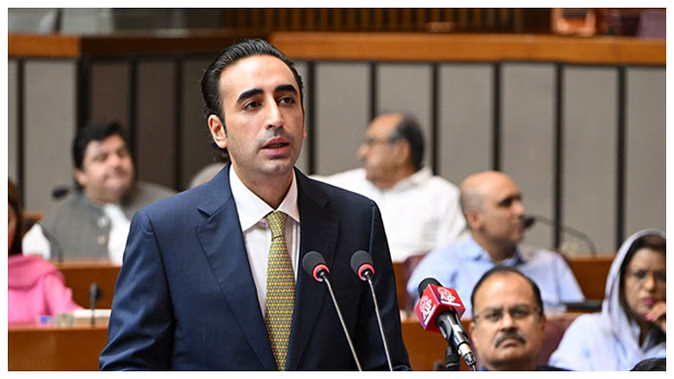Pakistan’s Fear After Operation Sindoor: Bilawal Bhutto Admits “Masood Azhar May Be in Afghanistan”
In a shocking revelation, former Pakistan Foreign Minister Bilawal Bhutto Zardari admitted that Islamabad has no idea where India’s most wanted terrorist, Masood Azhar, is hiding. According to Bhutto, Azhar might be in Afghanistan, a claim that has sparked global attention amid rising tensions post-Operation Sindoor.
Masood Azhar, the founder of terror outfit Jaish-e-Mohammed (JeM), is the mastermind behind some of the deadliest terrorist attacks on Indian soil — including the 2001 Parliament attack, the 26/11 Mumbai attacks, the 2016 Pathankot Airbase attack, and the 2019 Pulwama attack. Declared a UN-designated global terrorist in 2019, Azhar remains a top priority for Indian security agencies.
Operation Sindoor: India’s Retaliation
India recently launched Operation Sindoor on May 7 in response to the April 22 Pahalgam terrorist attack. The surgical strikes reportedly targeted major terror hubs across Pakistan, including Jaish-e-Mohammed’s headquarters in Bahawalpur and Lashkar-e-Taiba’s base in Muridke. According to reports, 10 members of Masood Azhar’s family and four of his close aides were killed during the strikes.
This bold action has sent shockwaves across Pakistan’s political and military establishment, instilling fear that India will no longer tolerate cross-border terrorism. The aftershocks of Operation Sindoor are being reflected in political statements, especially from Bilawal Bhutto.
Bilawal Bhutto: “We Don’t Know Where Masood Azhar Is”
During an interview, Bilawal Bhutto said, “We have not been able to locate or arrest Masood Azhar. Given his background in Afghan jihad, we believe he might be in Afghanistan. If the Indian government shares credible information that he is in Pakistan, we would be happy to arrest him.”
This evasive response has raised several eyebrows. Why does Pakistan need more evidence from India despite repeated dossiers and intelligence reports? India has, on multiple occasions, provided proof that Azhar and Hafiz Saeed — another globally recognized terrorist — operate freely within Pakistan’s borders.
Is Hafiz Saeed Really in Custody?
Addressing claims that Hafiz Saeed is a free man, Bhutto said, “That is not factually correct. He is in the custody of the Pakistani state.” However, such statements have little credibility when juxtaposed with multiple international findings of Pakistan’s soft stance on terror groups.
Bhutto further added that Pakistan has helped foil terror plots in London, New York, and its own soil through international cooperation. However, critics argue that Pakistan’s failure to act against terrorists operating from its soil weakens its global counter-terrorism claims.
Excuses and Evasions: Shifting Blame to Afghanistan
Deflecting blame, Bhutto claimed that if Masood Azhar is in Afghanistan, it’s now under the control of the same groups the West once labeled as terrorists — a thinly veiled reference to the Taliban. He added, “Pakistan cannot do what NATO couldn’t in Afghanistan.”
This statement highlights Pakistan’s unwillingness to take decisive action against terror groups and reflects a consistent pattern of denial and diversion.
Indus Waters Treaty Threat: Another War Cry?
Bhutto also issued a provocative warning over the Indus Waters Treaty, threatening war if Pakistan doesn’t get its share of water. “The Indus is ours and will remain ours. Either our water will flow in it or their blood,” he warned.
India responded firmly. Union Minister Hardeep Singh Puri dismissed the remark saying, “Such statements are undignified. Tell him to jump into the river – if he finds any water left!”
Conclusion: Pakistan’s Credibility Under Global Scrutiny
Bilawal Bhutto’s startling confession about Masood Azhar and his defensive tone on international platforms reflects Pakistan’s mounting pressure post-Operation Sindoor. Despite global sanctions, mounting evidence, and India’s demands, Pakistan continues to deny the presence of terrorists like Masood Azhar on its soil.
India’s firm military and diplomatic stance is forcing the global community to reconsider Pakistan’s role in harboring terrorism. As pressure mounts, statements like Bhutto’s may continue, but actions — or lack thereof — speak louder than words.
